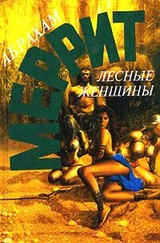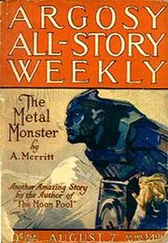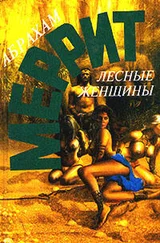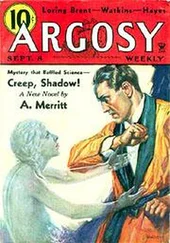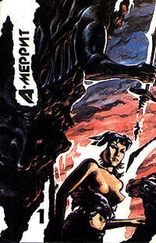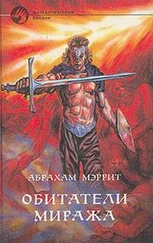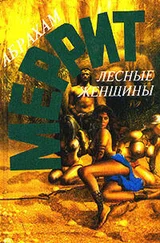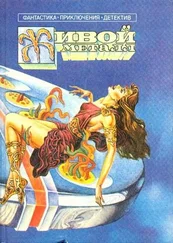Абрахам Меррит - The Ship of Ishtar
Здесь есть возможность читать онлайн «Абрахам Меррит - The Ship of Ishtar» весь текст электронной книги совершенно бесплатно (целиком полную версию без сокращений). В некоторых случаях можно слушать аудио, скачать через торрент в формате fb2 и присутствует краткое содержание. Год выпуска: 2014, Издательство: epubBooks Classics, Жанр: Фэнтези, на английском языке. Описание произведения, (предисловие) а так же отзывы посетителей доступны на портале библиотеки ЛибКат.
- Название:The Ship of Ishtar
- Автор:
- Издательство:epubBooks Classics
- Жанр:
- Год:2014
- ISBN:нет данных
- Рейтинг книги:5 / 5. Голосов: 1
-
Избранное:Добавить в избранное
- Отзывы:
-
Ваша оценка:
- 100
- 1
- 2
- 3
- 4
- 5
The Ship of Ishtar: краткое содержание, описание и аннотация
Предлагаем к чтению аннотацию, описание, краткое содержание или предисловие (зависит от того, что написал сам автор книги «The Ship of Ishtar»). Если вы не нашли необходимую информацию о книге — напишите в комментариях, мы постараемся отыскать её.
The Ship of Ishtar — читать онлайн бесплатно полную книгу (весь текст) целиком
Ниже представлен текст книги, разбитый по страницам. Система сохранения места последней прочитанной страницы, позволяет с удобством читать онлайн бесплатно книгу «The Ship of Ishtar», без необходимости каждый раз заново искать на чём Вы остановились. Поставьте закладку, и сможете в любой момент перейти на страницу, на которой закончили чтение.
Интервал:
Закладка:
His eyes followed the girdling stairway. He stepped forward that he might see a little better. Broad steps led up from its base to a wide platform on which stood many men on armor. That, he realized, was the garrison which they must either trick or overcome. His heart sank as he counted the soldiers that guarded it.
He looked beyond them. The rise of the stairway from the platform of the guards was gradual. About five thousand feet away the park came close to the side of the temple. There was a clump of high trees whose branches almost touched the stairway at that point.
Gigi's rope and grapple! Ah, wise had been the Ninevite, anticipating some such chance. Kenton was lightest of the four—he could climb those trees, drop to the stairway, or if that were not possible, cast the grapple over the wall of it, swing in and climb up the rope and over!
Then he could drop that rope for the three to swarm it. It could be done! And if in such a storm as Sigurd prophesied, with certainty of giving no alarm to the garrison below.
Suddenly he had the sense of being watched. He saw that the space between him and the temple was empty of people; saw an officer of the garrison standing at the base of the steps staring.
Kenton turned; swiftly skirted the street until he was back to the bench. He seated himself on it as he had been before—bent over, face in hands.
And as he sat there some one dropped down beside him.
"What is the matter, sailor?" came a voice, roughly kind. "If you are sick why not go home?"
Kenton spoke huskily, keeping his face covered.
"Too much of Emakhtila wine," he answered. "Leave me be. It will pass."
"Ho!" laughed the other, and gripped an arm about the elbow. "Look up. Better seek home before the tempest breaks."
"No, no," said Kenton, thickly. "Never mind the tempest. Water will help me."
The hand dropped from his arm. For a time, whoever it was beside him, was silent. Then he arose.
"Right, sailor," he said heartily. "Stay here. Stretch out on the bench and sleep a little. The gods be with you!"
"And with you," muttered Kenton. He heard the footsteps of that brief companionship retreating. Cautiously he turned his head, looked in their direction. There were several figures walking there among the trees. One was an old man in a long blue cloak; another an officer dressed like the one who had watched him from the base of the great stairway; a sailor; a hurrying citizen. Which had it been?
The man who had sat beside him had gripped his arm, gripped it where Sharane's bracelet was bound! And that officer—the watching soldier of the garrison! Had it been he? Had he been followed?
He sat bolt upright, clapped his right hand on the sleeve of the leather shirt. His hand touched—the bracelet! The sleeve had been slit by a knife to reveal it!
Kenton leaped to his feet—to run. Before he could take a step there was a rustling behind him, a trampling. A heavy cloth was thrown over his head like a bag. Hands clutched his throat. Other hands wound strand after strand of rope around his arms, pinioning them to his sides.
"Take that cloth off his face—but keep your hands around his throat," said a cold dead voice.
His head was freed. He looked straight into the pale eyes of Klaneth!
Then from the double ring of soldiers around him came a gasp of amazement, a movement of terror. An officer stepped forward, stared at him incredulously.
"Mother of the Gods!" he groaned, and knelt at Kenton's feet. "Lord—I did not know—" He leaped up, set knife to his bonds.
"Stop!" Klaneth spoke. "It is the slave! Look again!"
Trembling, the officer studied Kenton's face, lifted the cap veils; swore.
"Gods!" he exclaimed, "but I thought he was—"
"And he is not," interposed Klaneth smoothly. His eyes gloated over Kenton. He reached down into his belt, drew from it the sword of Nabu.
"Hold!" the officer quietly took it from him. "This man is my prisoner until I deliver him to the king. And till then I keep his sword."
The feral light in the pupils of the black priest glowed.
"He goes to Nergal's House," he rumbled. "Best beware, captain, how you cross Klaneth."
"Cross or no cross," replied the officer, "I am the king's man. His orders I obey. And you know as well as I do that he has commanded all prisoners to be brought before him first—no matter what even high priests may say. Besides," he added slyly, "there is that matter of the reward. Best to get this capture a matter of record. The king is a just man."
The black priest stood silent, fingering his mouth. The officer laughed.
"March!" he snapped. "To the temple. If this man escapes—all your lives for his!"
In a triple ring of the soldiers walked Kenton. On one side of him strode the officers; on the other the black priest, gloating gaze never leaving him; Klaneth, licking his merciless lips.
Thus they passed through the wooded park, out into the street and at last through a high archway, and were swallowed up within a gateway of the temple.
19
The Lord of the Two Deaths
THE KING of Emakhtila, Lord of the Two Deaths, sat, legs crooked, on a high divan. He was very like Old King Cole of the nursery rhyme, even to that monarch's rubicund jollity, his apple–round, pippin–red cheeks. Merriment shone in his somewhat watery blue eyes. He wore one loose robe of scarlet. His long, white beard, stained here and there with drops of red and purple and yellow wine, wagged roguishly.
The judgment chamber of the King of Emakhtila was some hundred feet square. His divan rested on a platform five feet high that stretched from side to side like a stage. The chequered floor raised in a sharp concave curve to build it. The curved front was cut through by a broad flight of low wide steps ascending from the lower floor and ending about five feet from the divan of the king.
Two and ten archers in belted kirtles of silver and scarlet stood on the lowest step, shoulder to shoulder, bows at stand, arrows at strings, ready on the instant to be raised to ears and loosed. Four and twenty archers knelt at their feet. Six and thirty shafts of death were leveled at Kenton, black priest and the captain.
Out from each side of the steps and along the curved wall to where it met the sides of the chamber another file of bowmen stretched, scarlet and silver, shoulder to shoulder, arrows alert. The twinkling eyes of the king could see the backs of the heads ranged over the edge of his stage like footlights.
Along the other three walls, shoulder to shoulder, arrows at strings, eyes fixed on the King of Emakhtila, ran an unbroken silver and scarlet frieze of archers. They stood silent; tense as automatons tightly wound and waiting for touch upon some hidden spring.
The chamber was windowless. Pale blue tapestries covered all its walls. A hundred lamps lighted it with still, yellow flames.
Twice a tall man's height away from the king's left hand a veiled shape stood, motionless as the bowmen. Even through its thick veils came subtle hints of beauty.
At the same distance from the king's right hand another veiled shape stood. Nor could its veils check hint of horror seeping forth from what they covered.
One shape set the pulses leaping.
One shape checked them.
On the floor, at the king's feet, crouched a giant Chinese with a curved and crimson sword.
Close to each end of the divan stood girls, fair and young and naked to their waists. Six to this side—six to that. They held ewers filled with wine. At their feet were great bowls of wine, red and purple and yellow, in larger bowls of snow.
At the right hand of the Lord of the Two Deaths knelt a girl with golden cup on outstretched palms. At his left hand another knelt, a golden flagon on her palms. And the king to drink used equally well his left hand and his right, raising cup or flagon, setting them to his lips, putting them back. Whereupon at once they were refilled.
Читать дальшеИнтервал:
Закладка:
Похожие книги на «The Ship of Ishtar»
Представляем Вашему вниманию похожие книги на «The Ship of Ishtar» списком для выбора. Мы отобрали схожую по названию и смыслу литературу в надежде предоставить читателям больше вариантов отыскать новые, интересные, ещё непрочитанные произведения.
Обсуждение, отзывы о книге «The Ship of Ishtar» и просто собственные мнения читателей. Оставьте ваши комментарии, напишите, что Вы думаете о произведении, его смысле или главных героях. Укажите что конкретно понравилось, а что нет, и почему Вы так считаете.

![Абрахам Меррит - Лунный бассейн [Лунная заводь]](/books/20623/abraham-merrit-lunnyj-bassejn-lunnaya-zavod-thumb.webp)
